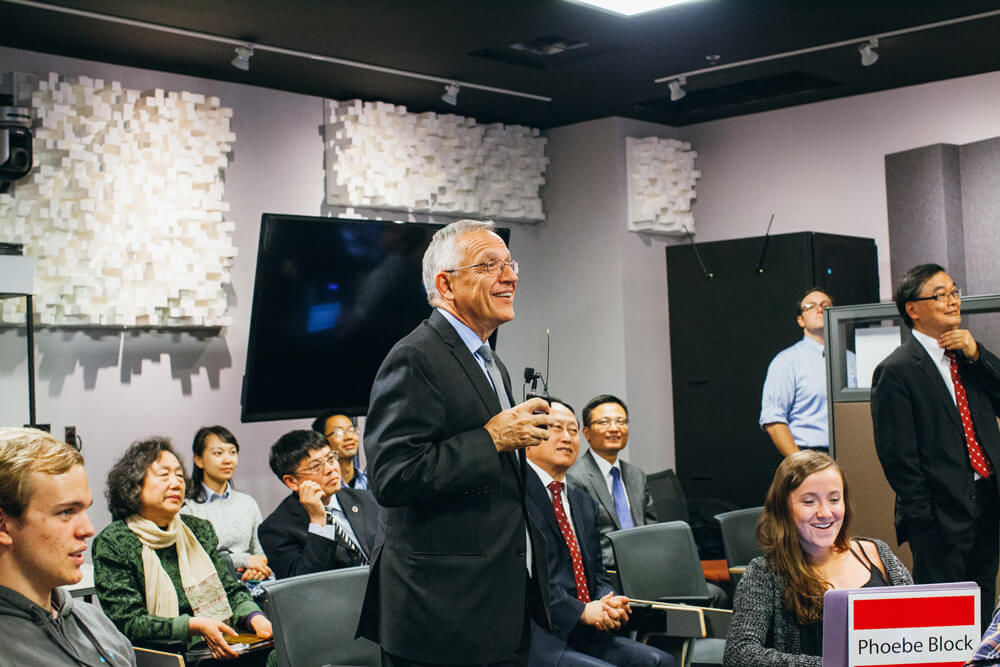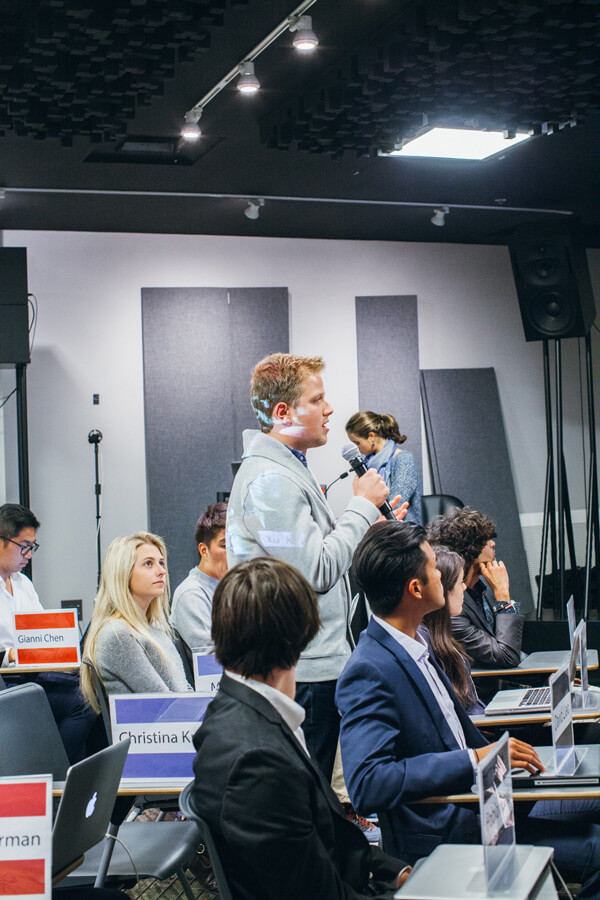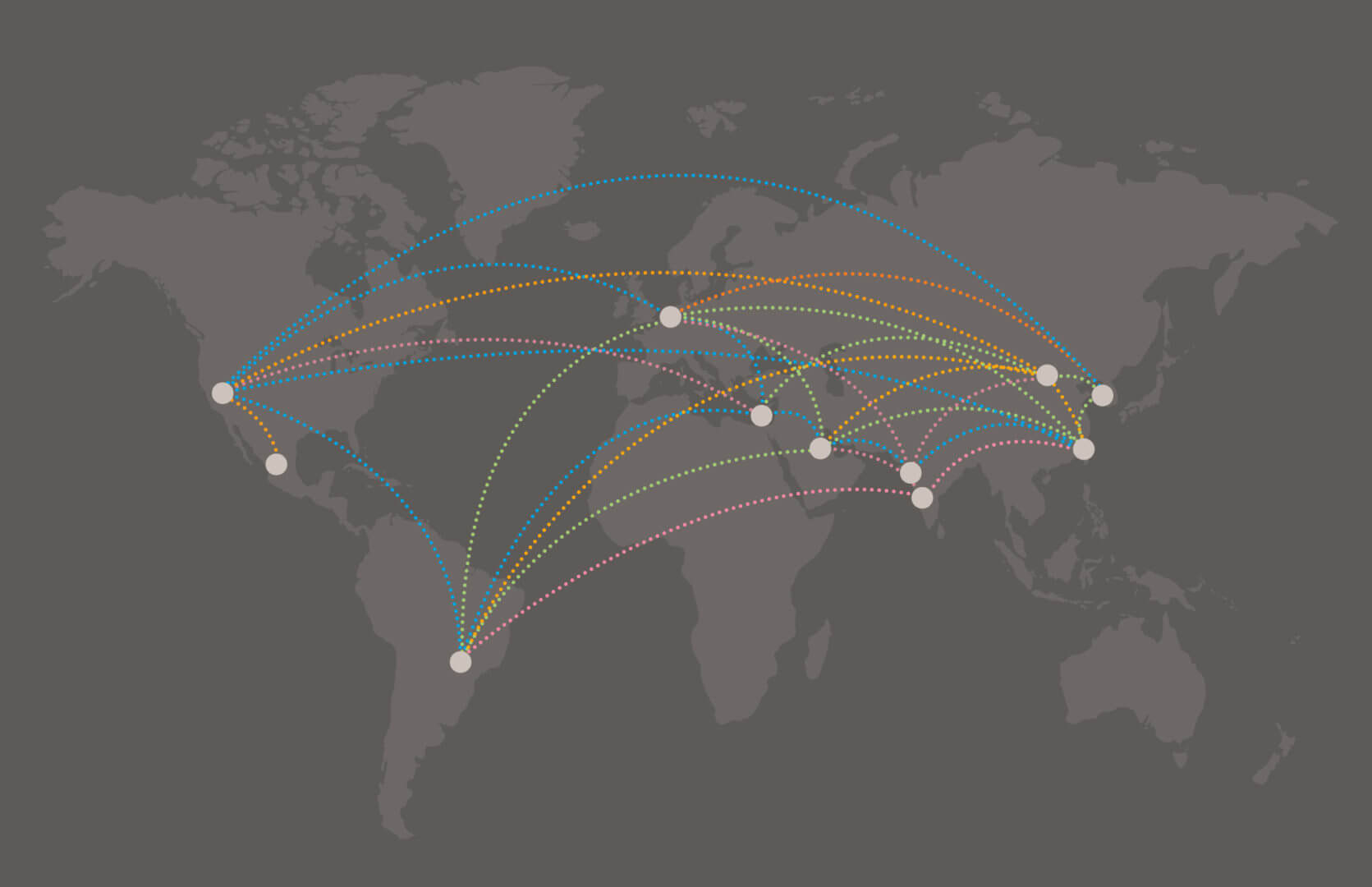Classrooms Without Borders



The student fired up his laptop as he settled into his seat for the two-hour class.
As his instructor started going over what material he would be covering that evening, Patrick Moynihan, a 23-year-old double major in business administration and accounting, started texting and chatting with classmates on his laptop.
Several of his classmates were sitting in rooms 6,200 miles away in China and South Korea, their grinning faces — in live, real-time video — popping up on Moynihan’s laptop screen as they messaged each other.
The program runs on USC Viterbi’s DEN platform, which for the third year in a row was ranked No. 1 in the U.S. News & World Report rankings for Online Graduate Computer Information Technology Programs.
Looming behind the professor was a screen split into multiple live audiovisual feeds: one showing 20 students in the USC classroom; one a classroom at Korea Advanced Institute of Science and Technology in South Korea; and two other screens displaying classrooms at Peking University and Tsinghua University in Beijing.
Welcome to the iPodia classroom, a one-of-a-kind educational experience that connects USC students with those in China, Taiwan, South Korea, India, Qatar, Brazil, Israel, Mexico and Germany — with more expected to join in soon.
Stephen Lu, creator and director of the Viterbi iPodia Program (ViP), has boldly proclaimed his “classrooms-without-borders” a “breakthrough innovation of higher education” in the 21st Century.
Ju-hyeong “Julia” Ha, 20, a junior Industrial & Systems Engineering major at the Korea Advanced Institute of Science and Technology, worked with her counterparts at USC on a green campus team innovation project — the main assignment during the recently ended semester.
During one Thursday evening class, Ha suggested producing a five-minute video about buses that could run on solar.
Her teammates at USC told her that buses aren’t as commonly used in the United States as they are in South Korea.
So Ha scrapped that idea.
Exchanges like that are at the heart of iPodia, where diversity becomes a source of learning and a catalyzer of innovating rather than a hindrance.
Zeqi “Isabella” Mao, 20, a freshman at Tsinghua University, the prestigious research university in Beijing, said the iPodia class provided her with “a new way of thinking and getting to know the world.”
The program runs on USC Viterbi’s DEN platform, which for the third year in a row was ranked No. 1 in the U.S. News & World Report rankings for Online Graduate Computer Information Technology Programs.
At the Thursday evening class in mid-March, Lu launched into a discussion about the importance of managing a customer’s expectations (exceed them, Lu said, and you’ll win a customer for life).
It was just after 7 p.m. in Los Angeles. In Beijing, it was around noon the next day. In South Korea, where students at the Korea Advanced Institute of Science and Technology were listening and watching, it was 11 a.m. Friday.
Although the technology involved in the iPodia classroom has tended to grab the spotlight — the first class was held in 2009 — the concept is about much more than technology, Lu said.
This past spring semester, 160 students on six campuses, divided into two sessions, took ENGR345. Most of the USC students in the iPodia class were sophomores and juniors recruited from both engineering and business schools.
Instead of students attending a lecture and then being assigned homework afterwards, Lu flipped things around. Students worked on their own at the beginning of each week and were paired up based on key concepts in which they were weak or strong, with the stronger students helping the weaker ones via Skype, chat or email. These peer-to-peer discussions are key to the iPodia concept.
“In this class, students did two-thirds of the work while I did one-third throughout a week,” Lu said. “And the most important thing is they were learning 24/7 from faraway places around the globe.”
Moynihan, who is moving to New York to work as a consultant in the advisory practice at PWC (PricewaterhouseCoopers), said the iPodia class far exceeded his expectations.
“We can get content knowledge from Google or Wikipedia, but unless we develop an effective framework for contextual understanding to apply that information, we’re just compartmentalizing a bunch of individual facts,” Moynihan said. “The iPodia class acted as a capstone, helping us develop a holistic picture.”




